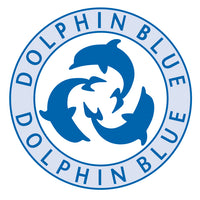
David Suzuki's mom cried for months when he passed up the chance at med school to instead become a geneticist. What she perceived as a loss was the world's gain.
Suzuki has become a world leader in sustainable ecology, science, and broadcasting, winning the Right Livelihood Award (known as the "Alternative Nobel Prize ") in 2009.
The Canadian grew up exploring the world around him. "Oh, I loved that swamp behind our house, " he told CanWest News Service. "I'd come home absolutely soaked, and covered with mud, with jars with frog eggs and stuff and my mother never said, 'Don't come in, don't dirty the house.' She'd just bring me in, take my dirty clothes off and everything I showed her she treated as if it were a Nobel Prize-winning discovery: 'Salamander eggs! Isn't that wonderful!' "
A Broadcasting Powerhouse Those early years no doubt influenced his life's work, which has been defending the earth and explaining science in easy-to-understand ways. He hosted the popular science program Quirks and Quarks on CBC Radio; Science Magazine, a weekly TV program geared toward an adult audience; The Nature of Things, a CBC television series that was broadcast in dozens of countries; an eight-part PBS/BBC series, The Secret of Life; and the eight-part A Planet for the Taking, which averaged nearly 2 million viewers per episode.
"Till then, I had always taken the position that humans were at the center of everything and that we had to constrain our interaction with the environment, " he told Canadian Geographic. "A Planet for the Taking made me realize that we are deeply embedded in a far more complex world than we understand. If we take the position that humans are part of a much greater whole, then we recognize that whatever we do to our surroundings, we do to ourselves, because there is no separation from it. "
Changing the Laws of Nature It's this idea that everything is interconnected that drives Suzuki, who was inspired by Rachel Carson's Silent Spring. He has spent decades warning people that Earth's future depends on our actions today. "Attitudes and behaviors must change if vast human misery is to be avoided, " he said at a speech at John Abbott College in October 2012. "There are 7 billion people on this planet. That's a huge ecological footprint -- just to keep us alive. Yet a study showed that 97 percent of teenage girls list shopping as their favorite activity. The challenge is to rediscover who we are and to understand that we are utterly dependent on the laws of nature. We need clean water and air to survive. We need healthy soil to grow food. We can change the market -- it's a human construct -- we sure as hell can't change the laws of nature. "
Suzuki, who is now 76 years old, is critical of his generation and the baby boomers that followed for not doing more to protect the environment. He believes elders and young people should come together now to chart a course for the future.
"I never say I'm optimistic or pessimistic, " he told CanWest. "I just say I'm hopeful. "
Learn more about Suzuki and the nonprofit he co-founded, the David Suzuki Foundation, here.
